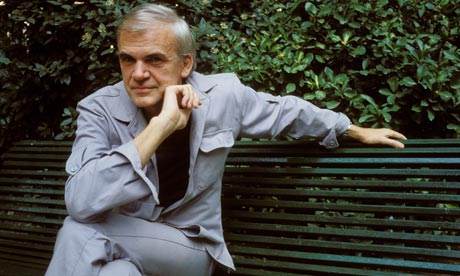This is an audio file from BBC World Service.

This is an audio file from BBC World Service.
Be very careful when using the following uncountable nouns, because they have no plural!
Ideas and experiences: advice, information, progress, news, luck, fun, work
Materials & substances: water, rice, cement, gold, milk
Weather words: weather, thunder, lightning, rain, snow
Groups or collections of things: furniture, equipment, rubbish, luggage
Other: accommodation, baggage, homework, knowledge, money, permission, research, traffic, travel
Only in plural: shorts, pants, pyjamas, glasses (for the eyes), binoculars, scissors, trousers.
Source: Cambridge Dictionaries
NOVEMBER 2014
Québec (Canada), 1 November 2014: 2014 Annual Conference – OTTIAQ (Ordre des traducteurs, terminologues et interprètes agréés du Québec)
Brisbane (Australia), 1 – 2 November 2014: Transition into the Future: Technology, Business, Theory-as-Praxis. (AUSIT) Biennial National Conference ’14
Saint-Denis, Reunion Island (France), 5-6 November 2014: International Seminar on ‘Heritage and Exchanges: “Multilingual and Intercultural Approaches in Training Context”
Berlin (Germany), 5-7 November 2014: Languages and The Media Conference 2014: Smart Technologies, Smart Translations
Portsmouth (UK), 8 November 2014: From Classroom to Workplace. Translation Conference 2014
Stuttgart (Germany), 10 November 2014: European Academic Colloquium on Technical Communication Studies
Milwaukee, Wisconsin (USA), 12 – 15 November 2014: Politics & Translation. ALTA Conference
Uppsala (Sweden), 13-14 November 2014: 5th Swedish Language Technology Conference
Limoges (France), 13 – 14 November 2014: International Conference: “Things unsaid…”. AFI 2014
Manchester (United Kingdom), 13-14 November 2014: Manchester Forum in Linguistics
Ottawa (Canada), 14 – 15 November 2014: Translation and Networking. World Words – The 1st Graduate Student Conference on Translation Studies
Valencia (Spain), 19-21 November 2014: 15th International Conference of the Spanish Association of Language and Literature Education: Challenges in the learning of literature and language in the digital age
Hannover (Germany), 19-21 November 2014: Visuelle Linguistik: Theorie and Anwendung von Visualisierungen in der Sprachwissenschaft
Salzburg (Austria), 21-22 November 2014: 7th Austrian Students Conference of Linguistics (ÖSKL)
Berlin (Germany), 21-22 November 2014: EXPOLINGUA Berlin 2014
Southampton (United Kingdom), 21-23 November 2014: Language Testing Forum 2014: Language Testing: Engaging multi-disciplinary perspectives
Barcelona (Spain), 26 November 2014: EAFT – Pre-Conference Catalan workshop
Barcelona (Spain), 27-28 November 2014: The VIIEAFT Terminology Summit: How does social networking affect terminology work?
Istanbul (Turkey), 27 – 28 November 2014: International Workshop on Intralingual Translation
Antwerp (Belgium), 28 November 2014: Digital Trends in (Applied) Linguistics, Literature and Translation Studies. BAAHE 2014 Annual Conference of the Belgian Association of Anglicists in Higher Education
Lodz (Poland), 28 – 29 November 2014: Teaching Translation and Interpreting 4 – TTI 2014

You’ll never know exactly what a translator has done. He reads with maniacal attention to nuance and cultural implication, conscious of all the books that stand behind this one; then he sets out to rewrite this impossibly complex thing in his own language, re-elaborating everything, changing everything in order that it remain the same, or as close as possible to his experience of the original. In every sentence, the most loyal respect must combine with the most resourceful inventiveness. Imagine shifting the Tower of Pisa into downtown Manhattan and convincing everyone it’s in the right place; that’s the scale of the task. Writing my own novels has always required a huge effort of organisation and imagination; but, sentence by sentence, translation is intellectually more taxing. On the positive side, the hands-on experience of how another writer puts together his work is worth a year’s creative writing classes. It is a loss that few writers “stoop” to translation these days.
How many syllables are in your name? You probably already know off the top of your head, but count them anyway. Most of us do the same thing when we’re counting. Putting more weight than usual on each beat, we number them off on our fingers.
[…] The syllable is an invisible thing, something that we can only really perceive and count when we say something out loud. It is hard to grasp scientifically and yet the basis for the most elegant things that humans have dreamed up out of the subtle alchemy of language use. Perhaps the elusiveness of the syllable’s true nature only makes our use of it in poetry the more mysterious and lovely. In sonnets or in the simple pulses of speech that make up your own name, we simply know that it’s there.
Read more: http://tinyurl.com/omlxl6k